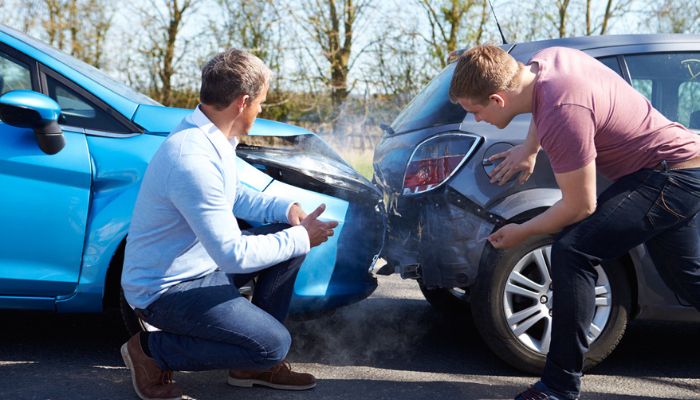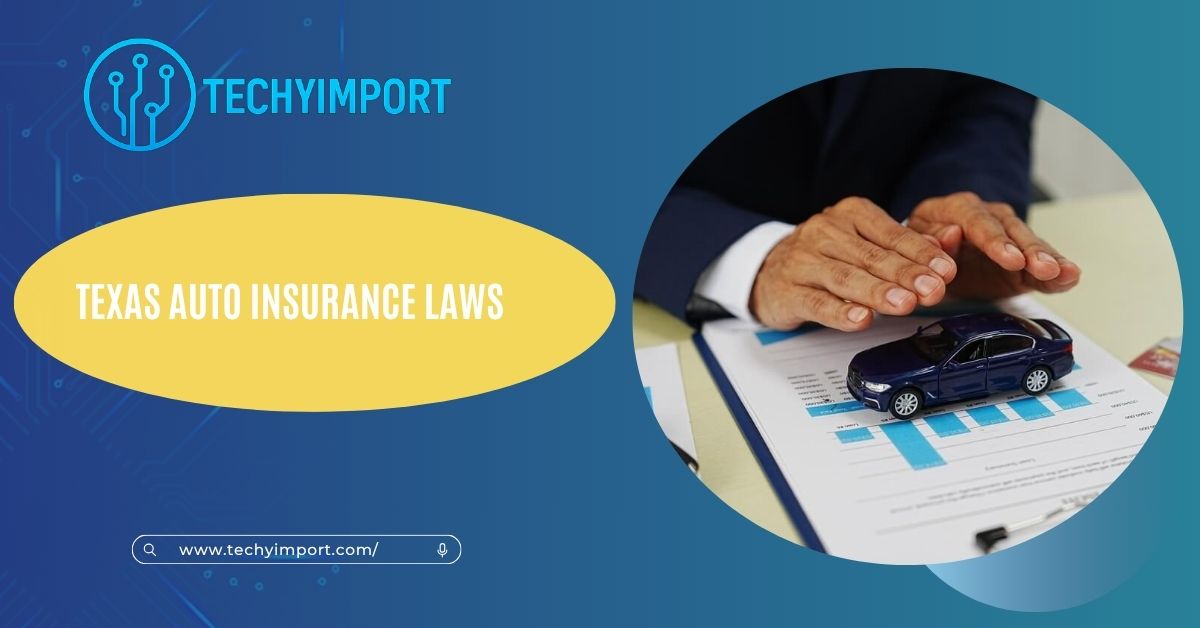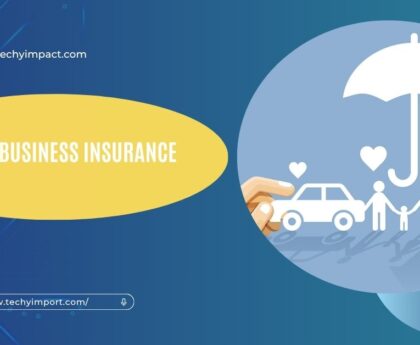Learning about Texas auto insurance laws made me realize how important it is to stay covered while driving. I used to think minimal insurance was enough, but now I see the risks of driving without proper proof.
In Texas, you must have auto insurance to drive legally, with minimum liability coverage required.You risk fines, license suspension, or even car impoundment if you are found to be driving without it.
In this article, you’ll learn how having the right auto insurance keeps you safe and legal while driving in Texas.
Table of Contents
- What are the minimal bus insurance conditions in Texas?
- Do I need bus insurance to drive in Texas – Cover Your Bus!
- What’s an SR22, and when do I need it – Learn More!
- What happens if I get pulled over without insurance in Texas?
- How much does bus insurance cost in Texas – Save Money!
- Can I drive an auto without insurance in Texas if I enjoy it outright?
- How do I prove I’ve bus insurance in Texas – Explore Further!
- Can I get bus insurance if I’ve a poor driving record – Get Insured!
- What types of bus insurance content are available in Texas?
- Can I switch bus insurance providers anytime in Texas – Stay Safe!
- What should I do if I get into an accident in Texas?
- FAQs:
- Conclusion:
What are the minimal bus insurance conditions in Texas?
In Texas, motorists are fairly needed to carry liability insurance that covers at least$ 30,000 for fleshly injury per person,$ 60,000 for total fleshly injury when multiple people are injured, and$ 25,000 for property damage.
This is known as 30/60/25 content. These minimal limits are designed to insure that if you are at fault in an accident, you can pay for injuries and damages caused to others. While these are the legal minimums, numerous motorists choose advanced content to more cover themselves financially.
Do I need bus insurance to drive in Texas – Cover Your Bus!
Yes, in Texas, it’s illegal to drive without at least the minimal liability insurance needed by law. This demand helps cover everyone on the road by icing that if you beget an accident, you can cover the damages and injuries you beget to others.
Driving without insurance can lead to serious penalties, including forfeitures, license suspense, and vehicle enrollment suspense. Indeed if you are driving an old or affordable auto, you still need insurance to avoid legal trouble.
What’s an SR22, and when do I need it – Learn More!

An SR22 is a document that your insurance provider files to demonstrate that you have the necessary liability coverage. You generally need an SR22 if you’ve been caught driving without insurance, been involved in a serious accident, or committed certain business violations.
In Texas, if your license has been suspended due to insurance violations, filing an SR22 is obligatory for reinstatement. It’s important to note that filing an SR22 does n’t mean you have advanced content; it simply proves that you meet the state’s minimal liability conditions.
What happens if I get pulled over without insurance in Texas?
- Fines and Penalties: You might have to pay a hefty fee if you are found to be uninsured. The amount can be hundreds of dollars.
- License Suspension: Until you provide evidence of insurance and pay any fines, your driver’s license may be suspended.
- Vehicle Impound: Your car might be taken away and kept in a lot until you can prove you have insurance.
- Court Date: You might be asked to go to court to explain why you didn’t have insurance.
- Higher Costs: coverage can be more costly to obtain insurance after being discovered to be without coverage. Insurance companies see you as risky.
- Reinstatement Fees: You might have to pay additional fees and provide evidence of insurance in order to obtain your license returned.
- Legal Trouble: If you keep driving without insurance, you could face more serious charges or fines.
- Insurance Proof: Always carry proof of insurance when driving to avoid problems if pulled over.
- Responsibility: Driving without insurance means you’re not protected in case of an accident, and you could be held responsible for damages.
How much does bus insurance cost in Texas – Save Money!
The cost of bus insurance in Texas varies depending on several factors, including your age, driving history, position, type of vehicle, content limits, and credit score. On average, Texas motorists pay around$ 1,500 to$ 2,000 per time for a standard policy.
Your megacity or city also influences rates; civic areas like Houston or Dallas may have advanced decorations due to increased threat of accidents and theft. To reduce costs, motorists can protect around for quotations, pack programs, and consider advanced deductibles.
Can I drive an auto without insurance in Texas if I enjoy it outright?
No, indeed if you enjoy your vehicle outright, Texas law requires you to have at least the minimal liability insurance to drive fairly. This regulation applies anyhow of whether your auto is financed or paid off.
However, you must carry evidence of insurance when driving or parking in public, If you plan to drive the vehicle. Driving without insurance can lead to forfeitures, license suspense, and vehicle enrollment suspension.
How do I prove I’ve bus insurance in Texas – Explore Further!

Insurance ID cards These are generally handed by your insurance company when you buy or renew a policy. Keep a physical dupe in your vehicle at all times.Electronic evidence numerous insurers offer digital IDs accessible via smartphone apps or dispatch.
It’s important to ensure your evidence of insurance is always current and accessible, especially during business stops or accidents. Failure to give evidence when requested can lead to forfeitures and license dormancies.
Can I get bus insurance if I’ve a poor driving record – Get Insured!
Yes, but your options may be limited, and decorations could be advanced. Insurance companies view motorists with poor driving records, similar as those with accidents, tickets, or DUI violations, as an advanced threat.
To ameliorate your chances Protect around with different insurers, as some companies specialize in high threat motorists.Consider adding your deductibles to lower decorations.
Reduce the number of points on your record by enrolling in protective driving classes.
What types of bus insurance content are available in Texas?
Commercial Coverage:
In Texas, bus owners can choose from different types of commercial insurance to protect their vehicles and passengers. Commercial bus insurance usually covers damages to the bus, injuries to passengers, and liability if someone is hurt or their property is damaged.
Passenger Protection:
Passenger protection is an important part of bus insurance in Texas. This coverage focuses on safeguarding the people riding the bus. It includes personal injury protection, which helps pay medical bills if someone gets hurt during a trip.
Liability Insurance:
In Texas, liability insurance is an essential part of bus coverage. It protects bus owners if they are held responsible for causing an accident or injury. If someone sues the bus company for damages, liability insurance helps pay for legal costs and any compensation owed.
Additional Coverage:
Besides the basic insurance types, bus owners in Texas can add extra coverage to suit their specific needs. This might include roadside assistance, which helps if a bus breaks down or gets flat tires. Collision coverage pays for repairs if the bus hits another vehicle or object.
Special Policies:
Special policies are tailored insurance plans designed for specific types of buses or unique operations. For example, school bus insurance has different requirements than charter bus insurance.
Can I switch bus insurance providers anytime in Texas – Stay Safe!
Yes, Texas motorists can switch bus insurance providers at any time, but there are some important considerations. Notify your current insurer Cancel your policy according to the terms( generally 30 days’ notice).
Get new evidence of insurance Before canceling, insure your new insurer issues evidence of content. Avoid content gaps Make sure the new policy starts before the old one ends, so you’re continuously ensured.
What should I do if I get into an accident in Texas?

- Stop incontinently and check for injuries.
- Exchange information with other motorists, including insurance details.
- Gather substantiation Take prints of damages, the accident scene, and any applicable conditions.
- Report the accident to the police if someone is injured or property damage exceeds$ 1,000.
- Notify your insurance company instantly to start the claims process.
- If necessary, prepare a police report, particularly if there are injuries or substantial property damage from the collision.
- Keep records Save clones of all reports, prints, and correspondence.
- Seek medical attention indeed if injuries feel minor.
- Avoid admitting fault at the scene; let the insurance adjusters determine liability.
FAQs:
Can I get bus insurance if I’ve a DUI conviction in Texas?
Yes, but it might be more precious. A DUI conviction in Texas significantly impacts your capability to get affordable bus insurance because insurers see you as a high threat motorist.
Isnon-owner bus insurance legal in Texas?
Yes,non-owner bus insurance is legal in Texas. This type of insurance provides liability content if you regularly drive vehicles you do n’t enjoy. It’s useful for people who constantly rent, adopt, or drive someone else’s auto but don’t enjoy a vehicle themselves.
How frequently should I review my bus insurance policy?
It’s recommended to review your bus insurance policy at least once a time or whenever you witness significant life changes. Changes similar to buying a new auto, moving to a different megacity, getting wedded, or adding a teen motorist can impact your content needs and costs.
What should I do if my insurance claim is denied in Texas?
Still, first review the denial letter precisely to understand why the claim was rejected, If your insurance claim is denied in Texas. Common reasons include content rejections, policy limits, or controversies over fault.
Are there any exceptions to bus insurance conditions in Texas?
Yes, certain vehicles and situations are pure from bus insurance conditions in Texas Farm outfit Vehicles used solely for husbandry and not on public roads are generally pure.
ATVs and other offroad vehicles are n’t needed.
Conclusion:
In Texas, bus insurance offers many types of coverage to protect buses, passengers, and drivers. Different policies help cover accidents, injuries, and damages, making sure everyone stays safe. Adding extra protection can help handle unexpected problems like breakdowns or theft.





